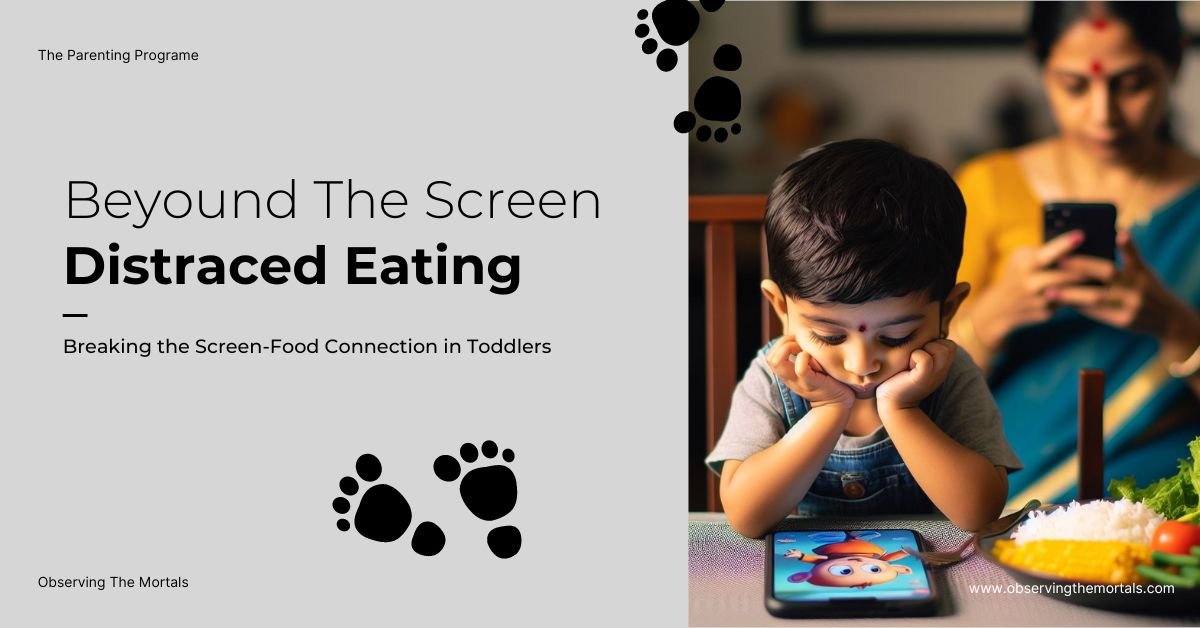It’s a scene playing out in homes everywhere: a toddler refusing to eat, eyes glued to a smartphone or tablet. Distracted eating has become the norm for many young children, leading to unhealthy habits and a warped relationship with food. To break this pattern, we need to understand what’s happening beneath the surface within a child’s developing mind.
The Neuroscience of Distraction and Reward
- Associative Learning: When children consistently eat while watching screens, their brains create a powerful link between the stimulating content and food. This means eating itself may no longer feel rewarding enough without that extra dose of excitement.
- Dopamine Surges: The “feel-good” chemical, dopamine, is released when a child enjoys rewards like screen time or highly palatable foods rich in sugar, carbs, and fats. Over time, their brains become accustomed to this surge and may find healthy, everyday meals less appealing.
- Food is Necessity, Not Just Rewards: It’s important to reshape children’s perception of food as nourishment and not solely a source of entertainment or immediate gratification.
The Psychology of Food and Family
- Certainty vs. Scarcity: Children from more secure households with predictable access to food might lose interest in something that is always readily available. Conversely, those who have experienced food insecurity may develop a tendency toward overeating due to a heightened reward response associated with food.
- Overfeeding and Aversion: Pressuring children to overeat can backfire, creating negative associations with food and leading to future aversion.
- Food as Manipulation: Using food as a reward or punishment undermines developing a healthy relationship with eating.
Solutions: Breaking the Screen-Time Meal Cycle
Establishing healthy eating patterns is crucial for a child’s long-term well-being. Here’s how to break the screen-time dependency:
- Cold Turkey or Gradual Reduction: Decide what works best for your child – removing screen time during meals altogether or phasing it out gradually.
- Mindful Mealtimes: Create a distraction-free environment. Turn off TVs, phones, and tablets for everyone at the table.
- Engage and Interact: Make mealtimes fun with conversation, storytelling, or simple games to keep toddlers interested.
- Healthy & Appealing Options: Offer a variety of healthy and visually appealing foods. Involve children in simple food preparation to spark curiosity about what they’re eating.
- Consistency is Key: Set clear rules and enforce them calmly but consistently. Initially, there might be resistance.
Additional Tips:
- Don’t Give Up: It takes time and patience to change established habits. Celebrate small victories along the way.
- Be the Example: If adults are glued to screens during meals, children will mimic this behavior.
- Seek Professional Guidance: If you’re struggling or concerned about your child’s eating habits, consult with a paediatrician or child nutritionist.
Important Note:
The goal is not to eliminate screens from a child’s life but to ensure they don’t become a crutch for healthy eating habits. Food should be enjoyable, yet also recognized as essential for growth and well-being.
References or Resources which can be Used
- Pressure to eat | Child Feeding Guide
- Why Parents Shouldn’t Use Food as Reward or Punishment
- Child Development : The Importance of Healthy Eating Habits – Motherhood Hospital
By understanding the powerful motivations behind screen-focused eating and implementing these strategies, we can empower children to develop a positive relationship with food – one that nourishes both their bodies and minds.





